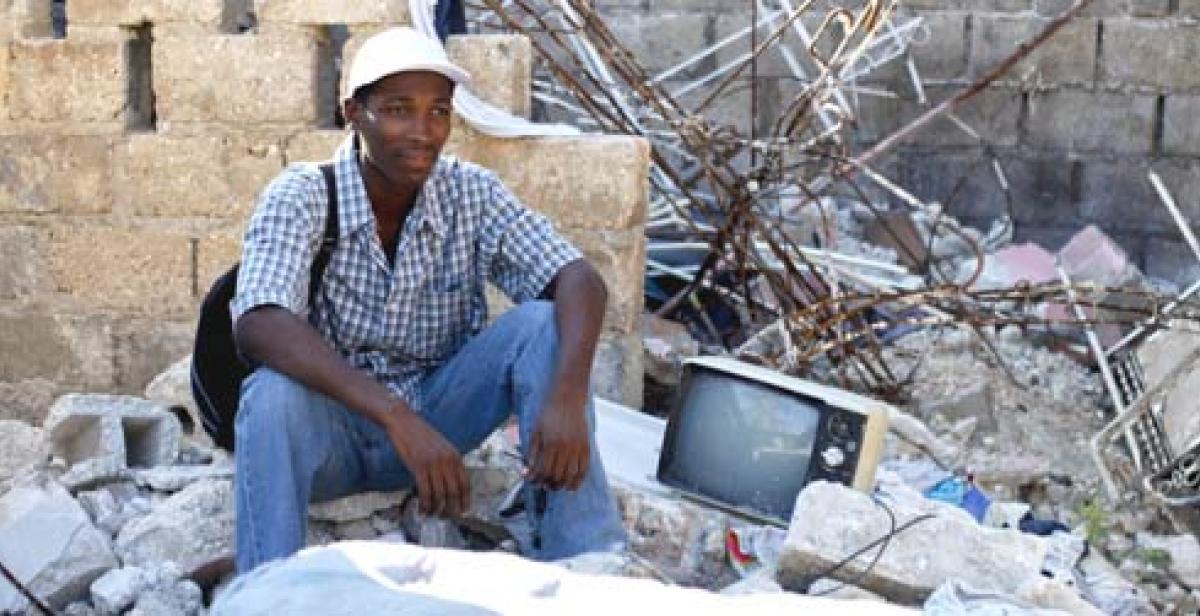Lizzette Robleto, Progressio's Latin America and Caribbean Advocacy Officer, relfects on what it means to 'build back better' in Haiti.
Life in Haiti is slowly getting back to a relative normality after the devastation of the 12 January earthquake. To mark the 6-month anniversary, stories and features showing the hardship of everyday life in the country were presented on TV and Radio. UK development agencies also contributed to highlighting this occasion by showing some of the progress their staff and volunteers have made so far.
Here at Progressio we deliberately decided to take a different angle, one which attempted to show the tension of delivering effective humanitarian relief - to meet the immediate present priorities of the population - and the need for ‘building back better’.
But what is ‘building back better’? For Progressio and our partners it means more than buildings themselves, it means having some clarity on new sustainable and inclusive models of development that will secure long lasting progress in the country. It requires a vision in the middle of post-earthquake chaos.
Haiti’s reality is extremely complex and the challenges are enormous; pushing for new models of sustainable and inclusive development while trying to rebuild its infrastructure at the same time is not that simple. Moreover, Haiti’s problems started long before January 12. Government institutions were already weak so have been very slow in assuming their responsibility.
The country is also strongly centralised. Drivers have to travel to Port-au-Prince to get a driving license, for example, so imagine how the apparatus of state works the further away from the capital you get.
But the scale of the devastation has, in a strange way, created the space necessary to build a new country based on new approaches. There can be no business as usual in Haiti, that’s what our partners in Haiti tell us. Sadly, these opportunities aren’t being taken.
The government isn’t engaging with Haitians living in the tent cities and so is poorly placed to develop action plans which fosters ownership and unites the whole Haitian population behind the reconstruction efforts. Without that ‘buy in’ there can be no hope for ‘building back better’.
I know that change is possible. There have been calls to include everyday Haitians in planning and recovery via local NGOs. At the moment, civil society is expected to play a very small part the National Recovery Committee, but has no voting rights.
Plans for reconstruction are unlikely to reflect what everyday Haitians need if civil society remains locked out. Deciding what’s best for people without asking them isn’t just bad development practice, it further alienates an increasingly dispossessed people.
Progressio is in a unique position in Haiti. Although we played a modest part in the immediate humanitarian relief coordinating the efforts of ‘Ayuda a Haiti’ (‘Help Haiti’, a joint Haitian and Dominican Republic platform for humanitarian relief which is now taking a longer term view), we’re not a humanitarian organisation. Our distinctiveness focuses on long-term development challenges. In this way we can facilitate local NGOs to take a long view.
Involving civil society is vital to the reconstruction effort in order to bring people along while also working at the pace needed. Haiti needs momentum if it is going to recover well, and we’re working to make sure it’s not at the expense of the people.
We’re concentrating on what we do best – helping local communities to be resilient and stand up for themselves.
Photo: Jean Gaudy Cesaire surveys the remains of his family home in Leogane, Haiti, June 12, 2010 (Photo © Natasha Fillion/Progressio).



